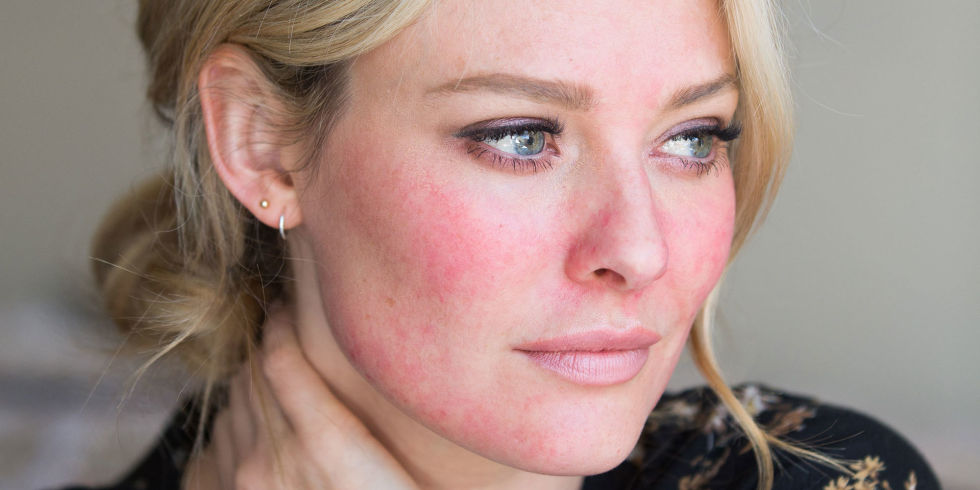Does alcohol cause rosacea to flare up?
Rosacea is a long-term, chronic skin condition. It causes redness on the cheeks, nose, chin, and forehead. It mainly affects women with lighter skin. However, in men, the symptoms are often more severe. Rosacea can also cause thread veins, thickening of the skin, and excess, bumpy tissue, especially around the nose, as well as papules, pustules, and spots.
Different reasons may cause flare-ups of facial redness, which can occasionally occur such as sun exposure, stress, exercise, and spicy foods.
At Allaymeds, we create various medicines in many forms such as gel or creme, and dosages. If prescribed medicine irritates your skin, any particular ingredient or dosage may be the reason. We can vary that quantity or ingredient according to your need. All you need to do is call us and your compounded medication will be delivered to you.
Does drinking cause rosacea?
The common belief is that excessive drinking causes rosacea, despite the fact that neither alcohol nor this condition is caused by excessive drinking. It is found that rosacea runs in families, usually among people with fair skin such as those Irish, English, Scandinavian, Scottish, and of similar descent.
Many people experience redness after drinking alcohol, similar to the symptoms of a rosacea flare-up, but it doesn't mean they have rosacea. According to a 2017 study, white wine or alcohol was linked to an increased risk of developing rosacea, although the exact cause is unclear.

Other alcohols such as red wine and beer consumption did not affect the chance of rosacea development in the first place. Experts have agreed that while alcohol may be a risk factor for rosacea, it does not always cause the condition. If left untreated, severe rosacea sometimes causes the skin to thicken and turn red, especially around the nose. The phenomenon, known as rhinophyma, was thought to be caused by heavy drinking, also known by the name “drinker's nose” or “alcoholic nose.” Patients can develop rhinophyma whether or not they drink alcohol.
Alcohol as a rosacea trigger
If you already have rosacea, drinking alcohol can trigger a rosacea flare-up. Its symptoms appear during flare-ups, facial skin becomes red, and sensitive, and develops pimple-like lesions. Alcohol causes the skin's blood vessels to enlarge, which causes the face to become flushed and reddened.
A survey by the National Rosacea Society found that certain drinks affect rosacea more than others. Red wine acts as the most common trigger for 76% of people. Red wine also contains high levels of histamines that have inflammatory properties, which results in flare-ups more likely. Next comes white wine which affects 56% of rosacea patients, beer is next with 41%, then champagne and vodka at 33% each. One drink was all it took for 64% of individuals who were affected by alcohol.
Keep a diary to know what kinds of a drink affects rosacea. Keep note of what you have drunk, in what amount, and how it affects rosacea symptoms. This will also enable you to determine your level of tolerance.
Tips for preventing alcohol flare-ups
Drink cautiously if you have rosacea. It is true that any amount of consumption will bring some risk of flare-ups, but there are ways to prevent them, such as :-

Choose drinks that don’t irritate your skin :- Different drink affects people differently. A drink that flares in one person might not affect another. Although the survey indicates red and white wine are the most common triggers, you must find what your triggers are. Some rosacea patients find a beer to be less irritating than wine but still, more research is needed.
Drink slowly :- The more quickly you drink, there are chances you may experience flushing. Drinking slowly lowers your cumulative alcohol intake. To avoid irritating your skin, drink slowly and moderately.
Drink a glass of water in between each drink :- There is a risk of dehydration if you drink too much alcohol and dehydration leads to skin sensitivity. Drinking water with alcohol intake will help to minimize some impacts of the latter. And ensure that your skin always has access to the water it needs to stay healthy. Alcohol causes an acidic condition in our bodies, which is considered pro-inflammatory. Drinking water helps the body's balance and brings it closer to an alkaline state, which has anti-inflammatory effects.
Avoid other triggers of rosacea :- Avoid exposing your body to more triggers while drinking alcohol. Avoid sun exposure, spicy foods, and other common triggers of rosacea with drinking. Take food that helps fight inflammation such as spinach, kale, broccoli, salmon, strawberries, nuts, and olive oil.
Replace alcohol with a mocktail :- You can take sparkling water with lime or a cocktail is also a good option. You can also take mocktails. These are nonalcoholic drinks made from a blend of juice and soft drinks.
Opt for drinks on the rocks :- Chilled wines and spirits may be better for your skin than warm or room-temperature drinks. Chilled beverages cause less blood vessel expansion than warm beverages.
Rosacea flares up even after your best efforts. Topical creams with time-tested ingredients can be used, such as metronidazole gel, sulfur or sulfacetamide creams, or azelaic acid creams. You can effectively manage your rosacea symptoms by selecting the proper treatment. Treatment can prevent rosacea from worsening.
